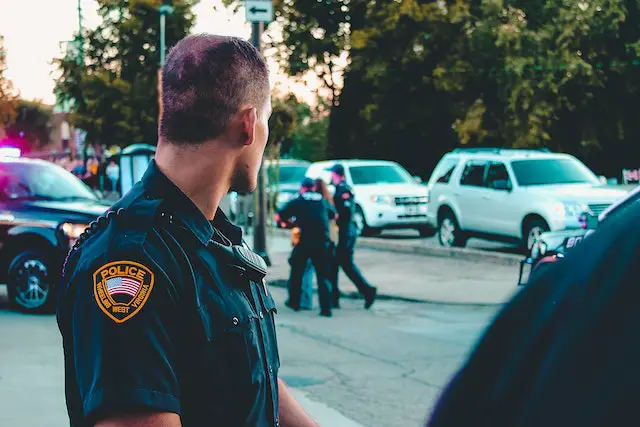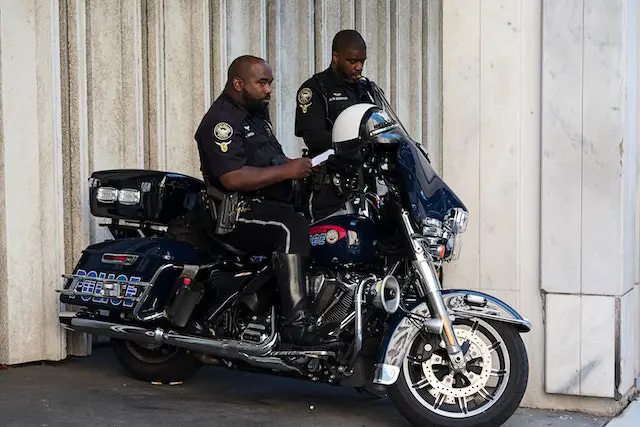
Do Probation Officers Work on Weekends?
The contents of this web page are for informational and educational purposes only, and nothing you read is intended to be legal advice. Please review our disclaimer before taking action based upon anything you read or see.
You might think do probation officers work on weekends? Are you eager to aid former lawbreakers in your neighborhood in regaining their rightful place as contributing members of society? Consider considering becoming a probation officer! But a major question most people ask is, “Do probation officers work on weekends?” Thus, we have made this post to educate you.
To stop criminals from committing new crimes, a probation officer collaborates with them and keeps track of them. They follow whatever orders the court gives them, the most frequent of which is to monitor criminals and look into the offender’s past before punishment.
In certain jurisdictions, community correction officers are also known as probation officers. They watch after those who have been given probation. Probation Officer do their best to prevent the offender from posing a risk to the public and aid their recovery.
They document each offender’s treatment goals and progress after being placed on probation in written reports. Most probation officers deal with adults or minors—probation officials only counsel adults and children in small, primarily rural counties. Come along as we go into more detail about this and their working hours.
What is a Probation Officer?

A probation officer is a member of the police force responsible for keeping an eye on offenders who have been let out of jail but are still subject to the criminal justice system’s jurisdiction. POs are trained in law and sociology, have the authority to arrest and detain people, and operate at the local, county, and state levels.
While most see probation officers as nothing more than offenders’ supervisors, their function within the legal system is far more extensive and intricate. Most probation officers start working with someone once they’ve been given a probationary term.
But before the trial even starts, they could advise the attorneys, judges, and other court personnel. In many countries, probation officers also take on the function of parole officer, which involves regulating the reintegration of formerly incarcerated people into society.
A probation officer is a court official who meets with defendants who have been given supervised probation regularly. These individuals are often perpetrators and low-level criminals. Most criminals who are put on probation have never committed a crime before. Any person on probation will help the court keep criminals out of jail.
Duties of a Probation Officer

Some duties of a probation officer include the following:
Evaluations
Probation staff frequently contact the perpetrator, their family, and law enforcement officials as soon as an agency receives a recommendation. To collect information and put the family engagement approach into practice, they visit homes, schools, and places of employment. They contact the victim or report when a crime has occurred or is alleged to get further details that will aid in managing and concluding the case.
Case Management
Following thorough evaluations, probation officers may recommend clients to affiliated agencies and neighborhood initiatives. Housing, job, training, and education demands commonly fall under this category.
Based on evaluations and data acquired, they develop and record case management plans that cater to the unique requirements of parolees.
Legal Processes
It is the responsibility of probation officers to accompany their clients to court appearances to support institutional recommendations for the parolee. They discuss the data acquired during the screening, evaluation, and monitoring procedures with lawyers, court assistants, and other legal representatives.
While taking part in court proceedings, they are required to fairly yet firmly represent their clients. Along with equity, accountability, public safety, and the requirements of the community of victims, this must strike a balance.
Intervening and directing
As part of their duty, probation officers must intervene or step-up monitoring to ensure that their clients follow the conditions of their parole. They strategize how to negotiate, carry out, and amend a case plan for their clients using risk assessments done during intake.
They sometimes have face-to-face encounters in their clients’ homes or other public spaces. After the court procedures, they arrange a face-to-face conference to examine the court order with the parolee and their family.
This is also done by resolving queries and implementing revised policies and standards. They need to find out specifically where their clients live, work, and spend their time to interfere with evasive customers.
Records Administration
Technical and paperwork tasks are also assigned to probation officials. To do all case management tasks, they access criminal justice information systems. This covers risk assessment, evaluation, case planning, interventions, and different histories.
Probation Officer guarantee correctness and punctuality when uploading necessary forms into the application. They may need to keep paper and digital documents, often communicated with the relevant law enforcement authorities.
They sometimes examine records to spot patterns in intake, check for correctness, and provide statistical reports. Meetings, investigations, community work, and special missions with other law enforcement agencies are part of a probation officer’s responsibilities.
Probation Officer Schedule
Typically, probation officials are employed by courts and prisons. They typically have client meetings in their workplaces and homes. On average, they put in 40 hours per week. However, they often work extra hours to meet timelines and finish investigations.
Probation officer weekend hours
Probation officers don’t only work from 8 a.m. to 5 p.m., Monday through Friday. On weekends, police enforcement often calls them out for various reasons. Sometimes weekend hours are needed to complete all the contacts, UAs, and house visits mandated by different courts and states.
Weekend visits may be permitted in certain jurisdictions for routine tasks, including head counts, courtesy assessments, and welfare checks. The police may enter in urgent circumstances in all regions.
Additionally, the probation officer can visit your home whenever they like. Keep in mind that you no longer have control over your life. As a result, when it refers to your probation officer, you cannot specify when you want company.
Additionally, there is a considerable potential that they may visit your home unexpectedly. This includes the weekends since they want to surprise you and discover what you are doing. All of it is par for the course.
Advantages and Disadvantages of a Probation Officer Working on Weekends
The Advantages and Disadvantages of a probation officer working on weekends have been highlighted in the table below:
| Advantages | Disadvantages |
| Conducting sporadic drug and alcohol testing to ensure that clients adhere to drug or alcohol regimens. | Circumstances might be dangerous during weekend hours. |
| Arranging frequent meetings to consult with the subject and assess their development | There are a lot of cases. As a result, working on the weekends may include some level of stress for you in your job. |
| Thorough case documentation throughout probation. | Weekend plans might be erratic for probation officers. As a result, you could be required to be available for assistance throughout the working day. |
| It supports providing your community with necessary assistance. | Due to shifting rates of imprisonment and probation judgments, you probably have a bigger workload as a probation officer. |
| You’ll also earn more on average working weekends as a probation officer. |
Alternative Options for Probation Officers

A court, parole board, or Probation Management Options may compel or penalize a person for doing unpaid labor for the good of the community. Community service may also require a direct judiciary or parole board command. This presents probation authorities with a solid substitute choice.
Conclusion
In conclusion, many people on probation reside in our communities, remain at home with their children, work, or are enrolled in school and raise them. A person on probation will need a probation officer.
Using different monitoring mechanisms and coordinating any extra services that may be necessary, probation officers assist offenders in fulfilling their probation. Additionally, they monitor probationers’ progress and provide advice while liaising between courts and offenders. The timetable is usually boring. Therefore, they will also be expected to work on weekends.
Expert Advice
Probation officials regularly monitor criminal offenders on probation after being released from jail. This indicates that their actions are closely watched to ensure they don’t violate the probationary conditions.
A probation officer’s responsibility is to meet with offenders and keep an eye on them to make sure they are carrying out the requirements of their community outreach order. This also entails working on weekends. Thus, the tips above will aid you greatly.

I’m a driven and accomplished law graduate and post-graduate, passionate about sharing my legal expertise via my blog. I hold a Bachelor’s degree in Law from the University of London (UK) and a Master’s in Law from the University of Derby (UK). Both gave me the foundational knowledge and skills to excel in my chosen career path.
Throughout my academic journey, I have gained extensive knowledge in various fields of Law, including Corporate and Business Law in the USA, Criminal Law, International Law, US Copyright law, and most importantly, American Constitutional law.


Comments are closed.